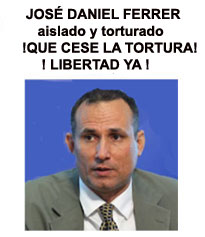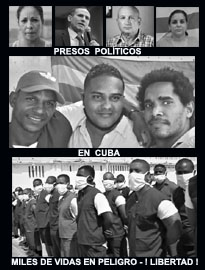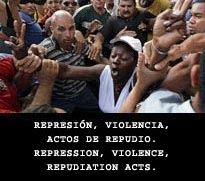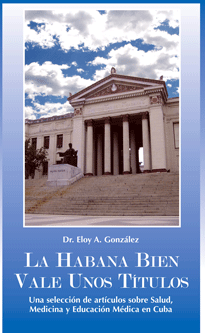
Mogherini's Visit and the EU's Deal with Cuba. By Osmel Ramirez Alvarez. Havana Times.

Mogherini’s Visit and the EU’s Deal with Cuba
Osmel Ramirez Alvarez
Havana Times
September 13, 2019
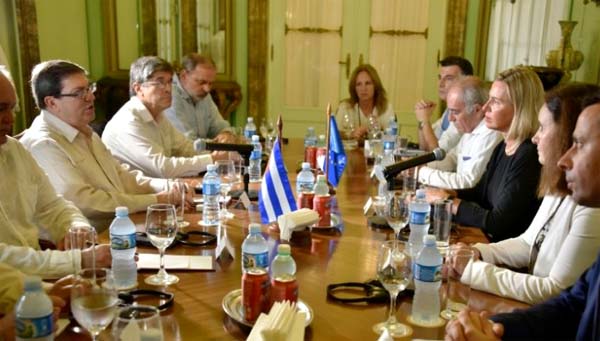
EU foreign policy chief Federica Mogherini (R) meets Cuba’s Foreign Minister Bruno Rodriguez
on September 8, 2019, in Havana. (AFP Photo- Adalberto Roque)
On September 9, the chief of European diplomacy, Federica Mogherini, concluded her trip to Havana, where she co-chaired the second EU-Cuba Joint Council and reviewed the current situation of the Political Dialogue and Cooperation Agreement between Cuba and the EU.
Judging by the impact the visit had on social media and alternative media platforms, the Italian diplomat, a centrist, isn’t at all popular among the government’s peaceful opposition and Cuban civil society. Europe’s unconditional ties with the Cuban government is interpreted as support for the regime.
In fact, the High Representative for Foreign Affairs and Security Policy only met with government representatives and cultural or social groups that are allies or dependent on the Communist Party’s rigid power. She isn’t interested, nor did she meet or listen to real Cuban civil society who are fighting to shape national life so that we can live in a better country, outside of government and state-run institutions, like we should be.
It’s quite striking to see Europe upholding these unconditional ties with the Cuban government, turning a blind eye to blatant human rights violations and clear evidence in the new Constitution that those in power haven’t a shown the smallest interest in democratic change or opening. According to Mogherini’s own words, she believes that the island “is a crucial partner because it can serve as a bridge between Latin America and other Caribbean countries.”
I can’t imagine what on earth it is that Europe wants to do in our region that Cuba can serve as a bridge. If the Cuban government is a key part of the puzzle, what is this exactly? Arming or breaking up guerrillas? Or exporting military intelligence services and advice or political policies? Or does it want to take part in the draconian business model of selling health care services. I can’t think of anything else Cuba might be a key spokesperson for, because our country has only been relatively successful in questionable areas.
If they are thinking about Venezuela and its current situation, it would be very childish of the EU to think that Cuba would help them to negotiate Maduro’s departure from power and call for fair elections, when Cuba was the one to influence Maduro, at least as an example, with becoming a lifelong leader or to simulate elections and criminalize the opposition.
The history of EU-Cuba relations has been a winding road. Ever since the EU emerged as a supranational entity, Cuba was already what it is today: a country governed by a single Party which imposes itself as the sole representative of our people, and doesn’t allow a single space, not even the smallest of spaces, for them to exercise their freedoms to change and choose a better future.
Like lots of the people in the world, Europe has fallen into the trap of believing that the small and insignificant “changes” in Cuba (which the government is handing out as a gift) are a sign of an exponential process that will lead to more defining changes.
However, the premise for change is first recognizing that things need to be changed, which goes for individuals and governments alike, and the PCC government believes it is the sole owner of the truth and blames everyone else for its shortcomings, especially the US.
Every sign of change is superficial and part of the government’s strategy to remain as a dictatorship; or to just take advantage of the good faith of those who have believed these siren calls, like Europe has.
The brief thawing of political and economic US-Cuba relations at the end of Obama’s administration, was incentive for Europe to advance with a quicker deal with the Cuban government, there’s no doubt about it. Substantial change seemed imminent and the Old Continent wanted to also be a key player in the new situation, which is understandable. However, it’s important to note that both Obama’s government and Brussels made a huge blunder when it came to these predictions: they overestimated that the Cuban system was changing.
The first two of the three chapters of the “Political dialogue” and “cooperation and sectoral policy dialogue”, include the subject of human rights. The third chapter is distinctly of an economic nature. However, you get the feeling that the economic/commercial aspect is the only thing that matters, which is the only place where you can see some results.
Meanwhile, the issue of human rights is cast aside for token conversations, that don’t result in anything or give any sign of progress. “Points of view” are just shared, but the adverse reality of human rights in Cuba isn’t assessed, and the Cuban government doesn’t feel any pressure from the EU to improve in this area. So much so that they have the luxury of turning up repression while they receive EU representatives, including Mogherini.
It’s clear that commercial affairs dominate the EU-Cuba agreement rather than Europe’s solidarity with the Cuban people in their fight for democracy in Cuba and respect for all of their human rights. It might even be Europe’s desire to show that there is an independent foreign policy to the US’, especially under Donald Trump’s controversial administration. Or they might even be sincere in their desire to cooperate with Cuba, hoping to influence change, even though they failed before.
Europe needs to change its stance in regard to Cuba, because they have adopted the wrong position. They can’t take a backseat and hope for a miracle while atrocious human rights violations are taking place under their noses. They should instead be demanding progress in this regard as a premise for their support and upholding the pact. This is the only way they can truly help the Cuban people as it would give civil society, independent media and the peaceful opposition a space to do the work that is critical right now, to work towards the change that Cuba desperately needs.




